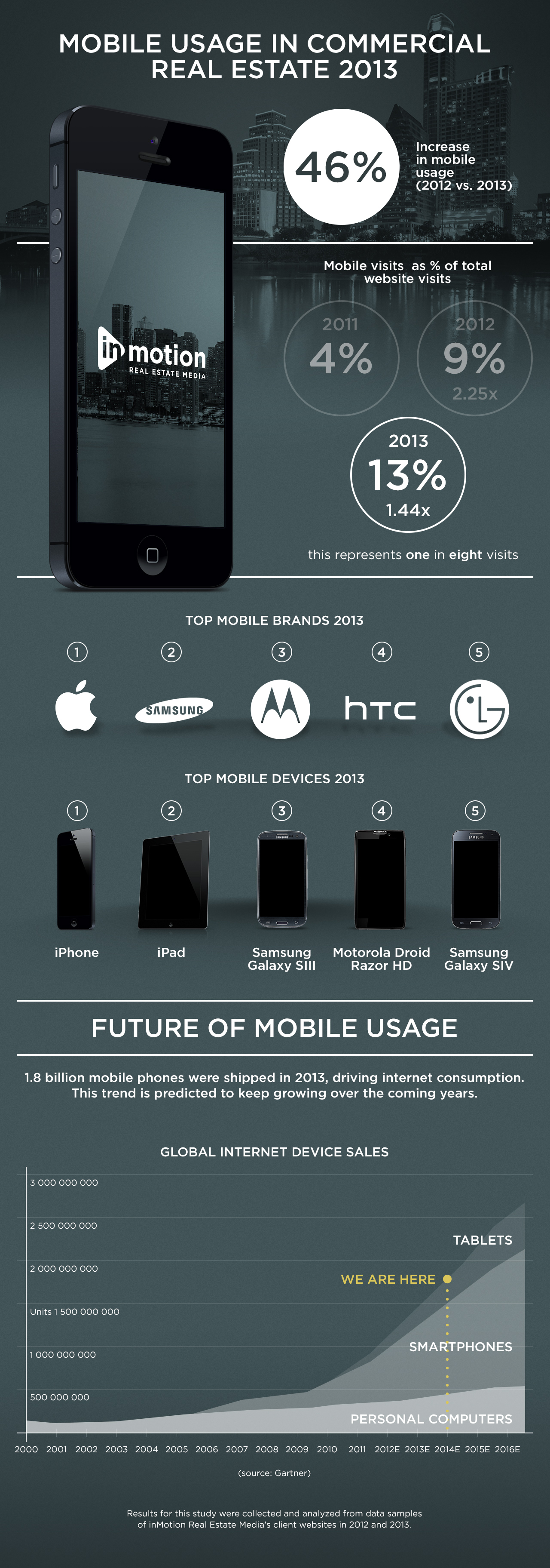
Mobile usage in commercial real estate
Technology in the commercial real estate sector moves at a far different pace than residential real estate, because the type of consumer is far different, and far fewer, and the professional needs of industry insiders are typically met by older software that may not be sexy and may be clunky, but transferring to another system is often regarded as a waste of time for a fast paced industry.
Despite that challenge, this year’s inMotion Real Estate Media survey rounding up 2013 data proves that mobile use, which was already on the rise, has jumped another 46 percent in one short year. Further, they found that one in eight commercial real estate site visits were done using a mobile device, up from just under one in ten visitors in 2012, marking rapid growth and a shift in consumer expectations (that commercial real estate sites be mobile-ready).
![]()
inMotion Founder, Bob Samii tells us, “The big surprise is the growing dominance of Samsung in the marketplace. In 2012, none of the Samsung devices were in the top 5 positions in terms of popularity and in 2013 we see 2 of the top 5 most popular mobile devices to be Samsung. Also, Blackberry, which was once the mobile device of choice for real estate professionals is quickly becoming irrelevant.”
Looking into the future
Samii sees some relevant changes coming for the commercial real estate sector and offers his predictions for 2014.
“Samsung will continue to gain market coverage especially among business users,” Samii opines. Further, “With the clear trend of growing mobile usage, real estate companies will see increased conversions (showing requests, calls, lead sign-ups, etc.) from mobile/tablet devices.”
Because of this, Samii notes that “Companies in 2014 that do not yet have a mobile strategy in place are going to lose business, this is without question.”
Full survey results
The American Genius is news, insights, tools, and inspiration for business owners and professionals. AG condenses information on technology, business, social media, startups, economics and more, so you don’t have to.












































